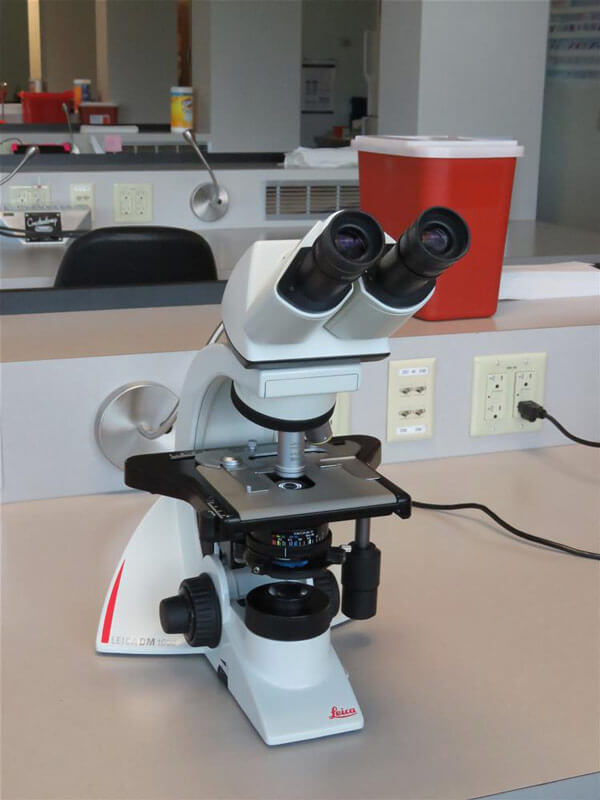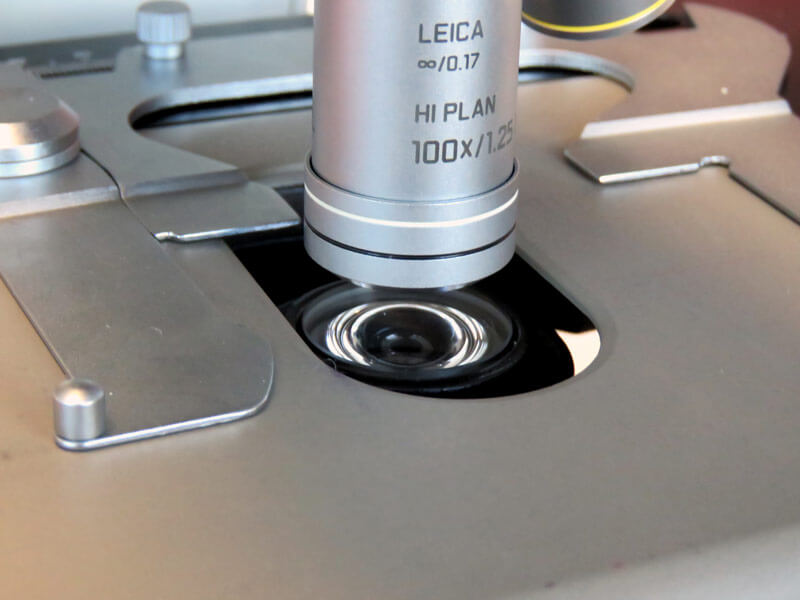Hematology studies the development and function of blood cells. Students use a state-of-the-art flow cell hematology analyzer and learn to evaluate normal and abnormal blood cell morphology by examination of blood smears under the microscope. Students study the mechanisms of hemostasis, hemostatic disorders and diagnostic testing using benchtop coagulation analyzers. Students perform laboratory procedures to construct a differential diagnosis including sample preparation, screening tests and tests needed for confirming a diagnosis.
Related Degree Programs
Contact
The MLS students study immunohematology in this lab as well, developing practical skills to work in the contemporary blood bank laboratory. The students learn blood type Identification, antibody screens, cross-matching and other specialized procedures that may be needed prior to transfusion. Topics of instruction include blood groups biochemistry, genetics, immunology, test methods and transfusion practices including donor selection, component preparation, quality management and compliance issues. Students are given instruction in manual methods as well as current gel technology.


Urinalysis can be used to detect a wide range of diseases such as kidney disease, diabetes, and urinary tract infections. Students learn normal renal function and disease processes. In the lab students use basic urinalysis automation and both bright field and polarizing microscopy for the examination of urinary elements.






